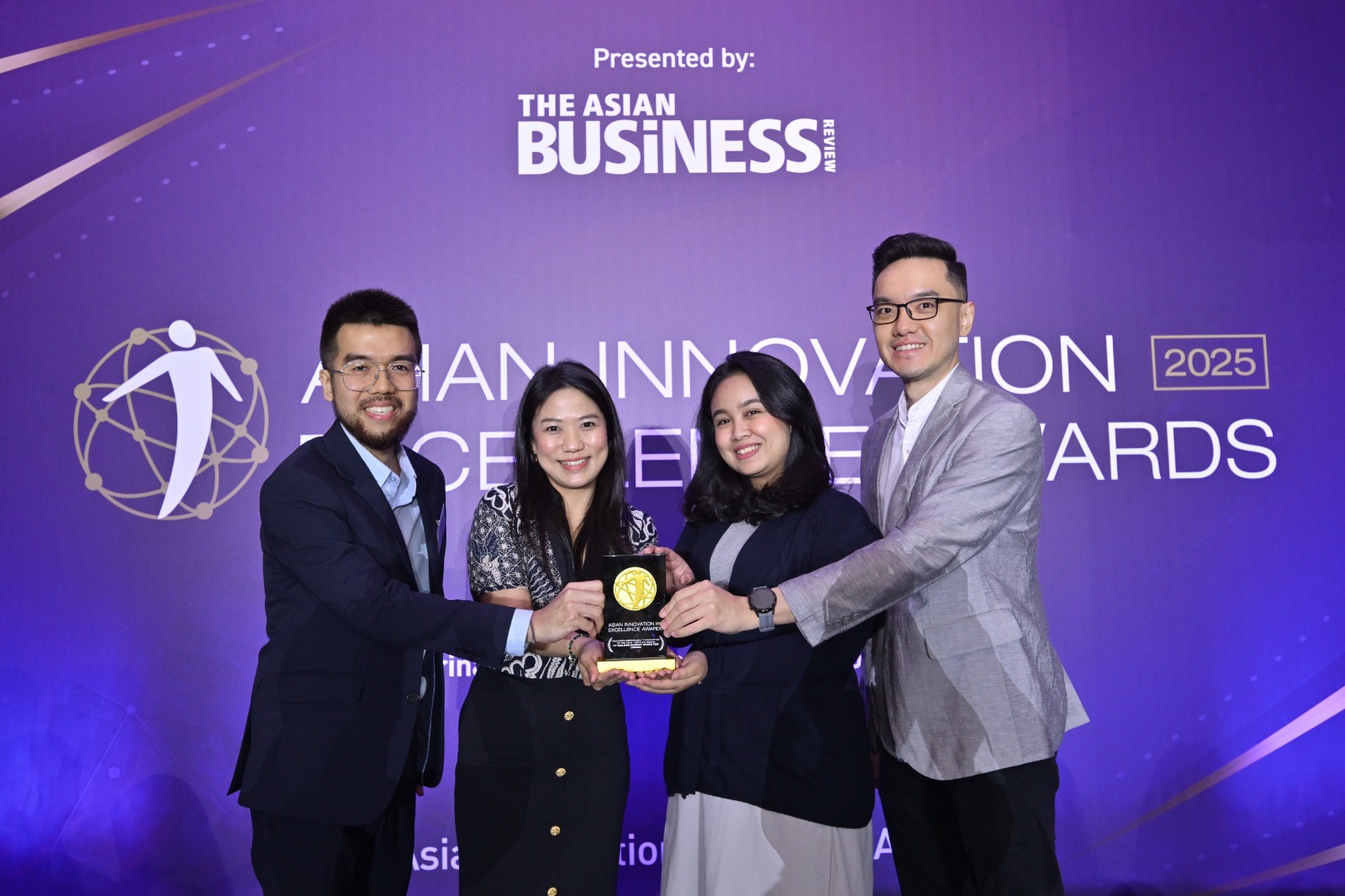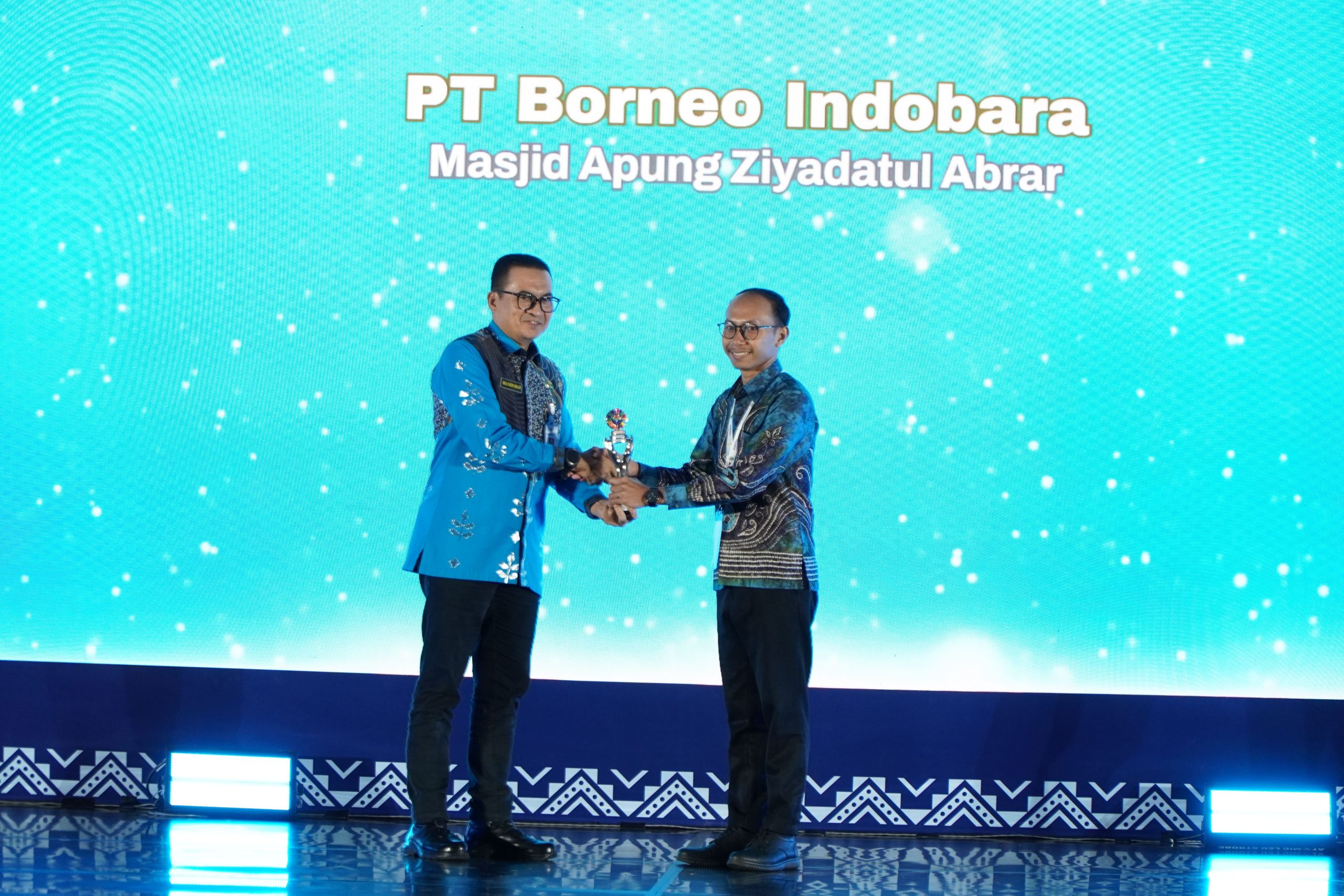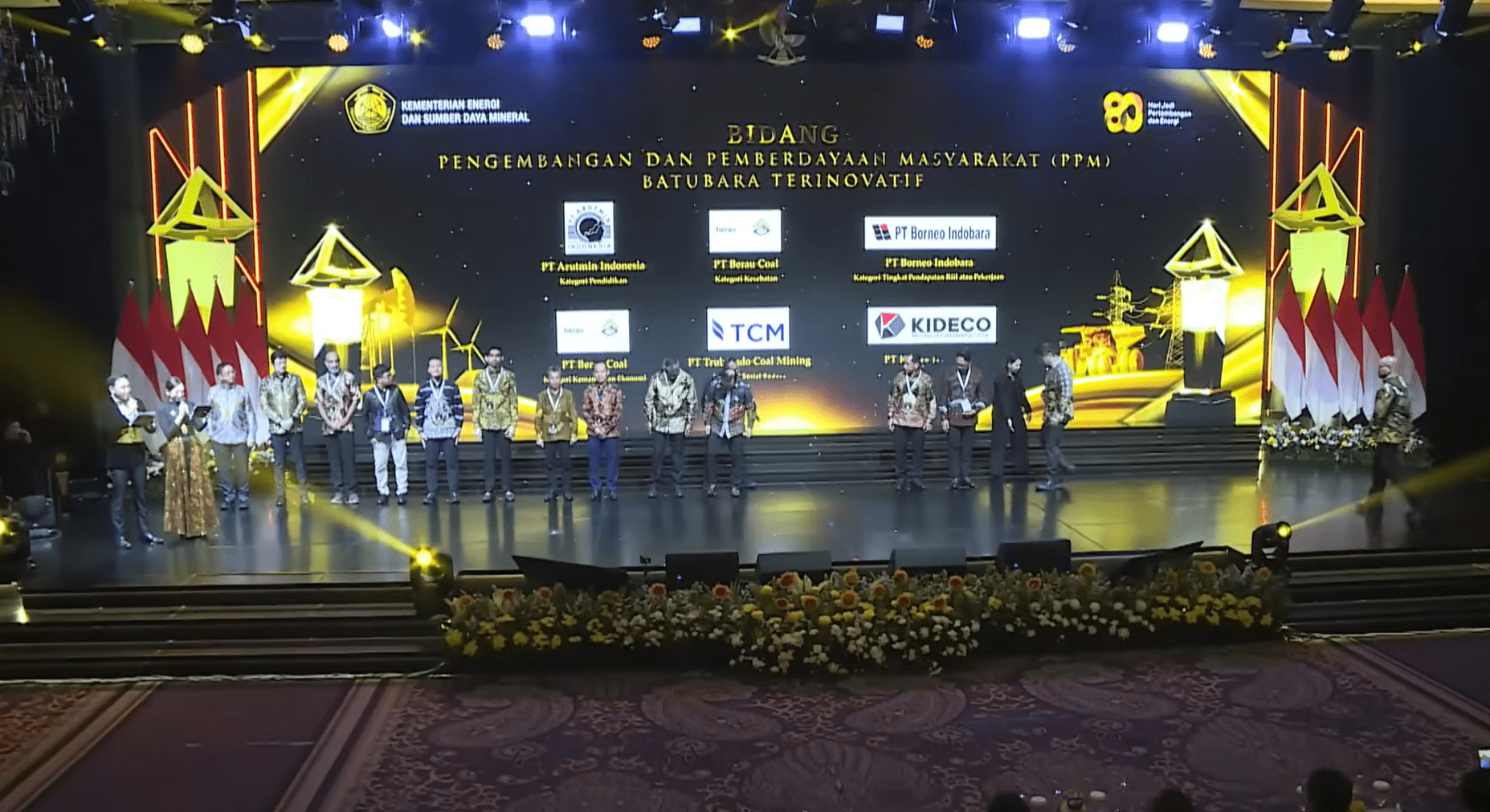Coal mining in Indonesia remains a pillar of global energy, a vital source of foreign exchange, and a key driver of national industry. Today, Indonesia stands among the world’s largest coal producers and exporters.
PT Golden Energy Mines Tbk (GEMS), established in 1997, manages extensive mining concessions across Sumatra and Kalimantan. Our commitment lies in maintaining supply stability while advancing sustainability across operations.
National Coal Production Trends
Indonesia’s coal production has continued to grow steadily over the past five years:
|
Year |
2020 |
2021 |
2022 |
2023 |
2024 |
|
Coal Production (million tons)* |
563.73 |
613.99 |
687.43 |
775.18 |
836.13 |
*Source: Ministry of Energy and Mineral Resources (ESDM) Performance Report, 2024
The Ministry of Energy and Mineral Resources (ESDM) recorded that during the first semester of 2025, national coal production reached 357.6 million tons, or 48.34% of the 2025 production target of 739.67 million tons.
The national coal supply was allocated for export at 238 million tons, meeting 45% of the world’s electricity demand. This figure proves that Indonesia remains a major player in the global energy chain. Despite the ongoing global energy transition, Indonesia’s coal mining industry continues to play a strategic role in maintaining supply stability and supporting the national economy.
GEMS’ Production Figures
GEMS supports national coal production, where GEMS produced 50.7 million tons in 2024, an increase of 10% compared to 46.1 million tons in 2023.
Our commitment is clear: to ensure that the national coal supply chain remains well maintained. This is also in line with the ongoing progress of energy and development demands.
Key Export Markets
Most of GEMS’ production serves strategic export destinations including China, India, South Korea, the Philippines, Malaysia, Bangladesh, Vietnam, Cambodia, and Hong Kong.
GEMS’ coal exports power a variety of industries from electricity generation to cement manufacturing, demonstrating our crucial role in regional energy and industrial supply networks.
How GEMS Overcome Future Challenges
Indonesia’s strong coal performance does not come without challenges—ranging from environmental and energy transition issues to social dynamics that require careful, balanced management.
GEMS Initiatives in Addressing Environmental Issues
Supply is not the only challenge faced by Indonesia’s coal mining industry. Emissions, deforestation, and operational waste are additional impacts that must be properly managed by mining companies.
GEMS responds to these issues through various initiatives, including mine reclamation, mangrove planting, and the processing of raw water from former mining sites into clean and drinkable water.
The company has also implemented the use of electric trucks, real-time emission monitoring dashboards, and the conversion of used oil waste into environmentally friendly blasting agents.
These measures serve as concrete actions in applying low-emission technologies, in line with national coal energy policies and carbon footprint reduction targets.
Through these commitments, GEMS demonstrates that sustainability is a key strategy in facing the future of Indonesia’s coal mining industry
Social Issues: Knitting Harmony Amid Challenges
Social challenges are an integral part of the mining industry. Land conflicts, basic community needs, and local economic vulnerabilities demand a collaborative and sustainable approach. GEMS, through PT Borneo Indobara (BIB), responds to these issues through CSR programs that target the real needs of communities around the mine.
- Andaru Drinking Water: Former mining ponds are treated with modern technology to produce healthy pH 8+ drinking water, supplying 1,811 households and reducing household water expenses by up to 93%.
- Education Scholarships: Supporting the future of the younger generation through 95 undergraduate scholarships for children in ring 1.
- Stunting Program: Improving maternal and child health through nutritional intervention, education, and strengthening integrated health service posts (posyandu).
- Real Economy: Developing agriculture, fisheries, livestock, and home industries as a strategy for poverty alleviation.
- Idle Land Transformation: Optimizing land in 22 villages in ring 1 to be productive, as a step towards economic transition from dependence on mining to the agriculture and plantation sectors.
By strengthening institutions through Bumdes, cooperatives, and Bumdesma, BIB presents an ecosystem that not only reduces social vulnerability but also encourages sustainable village independence..
GEMS Strategies to Capture Future Opportunities
Export Potential
As one of Asia’s key coal suppliers, GEMS remains focused on maintaining the trust of long-term clients while expanding into new markets.
This includes implementing continuous improvement and digital transformation to enhance production efficiency and workplace safety.
Technological Innovation
Digitalization and the Mining 4.0 concept also drive operational efficiency, measurable workplace safety, and emission control.
GEMS adopts these technologies to enhance productivity while reducing potential environmental impacts, resulting in more efficient operations, measurable safety performance, and well-managed emissions.
Adaptation and Sustainability
The era of clean energy is inevitable. GEMS supports the sustainable future of coal mining by aligning its operations with Indonesia’s green energy policies.
This approach opens new global market opportunities, as energy demand remains high despite tighter emission standards.
Read Also: Sustainable Mining Is Not a Concept It’s a Strategy for a Greener Future
Paving the Way Forward with GEMS
Coal mining in Indonesia continues to hold tremendous potential amid dynamic global challenges—provided it is managed with an adaptive and responsible vision.
GEMS proves that sustainability and business goals can move forward together.
In partnership with the government, GEMS is committed to advancing a green mining future, integrating environmentally responsible practices and sustainability principles for the continued growth of Indonesia’s coal mining industry.




